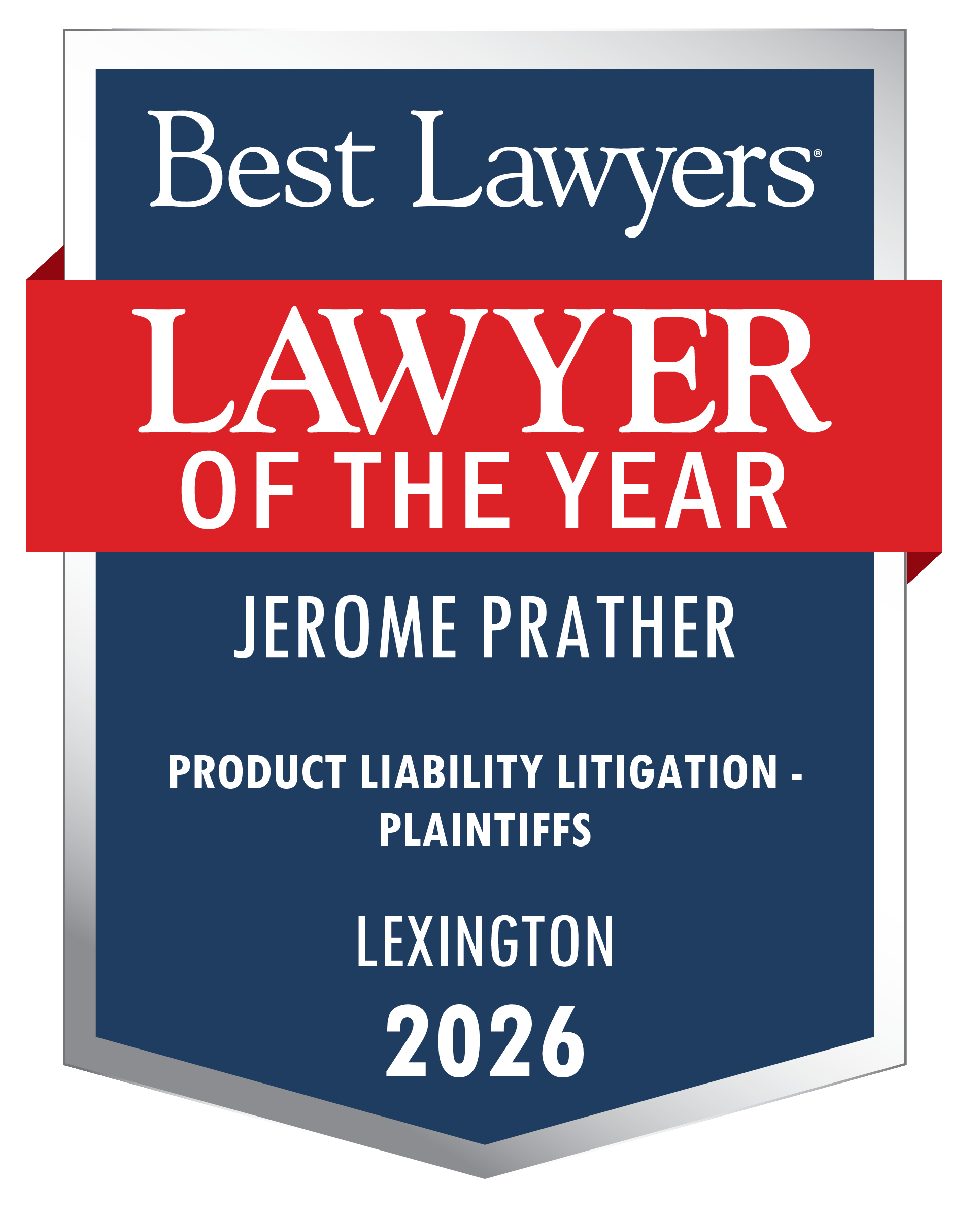
Garmer & Prather is proud to announce that attorney Jay Prather has been recognized in the 2026 edition of Best Lawyers in America and named “Lawyer of the Year” for Plaintiffs’ Product Liability Litigation – Lexington, Kentucky.
This distinction is awarded to only one attorney per practice area and region, reflecting exceptional peer recognition and professional excellence. This is the third year Jay has received the honor, and the ***th year overall he has been recognized by Best Lawyers in its nationwide listings. Best Lawyers selections are based entirely on confidential evaluations from other leading attorneys, underscoring the respect Jay Prather has earned for his advocacy and results. Lawyers are neither required nor allowed to pay a fee to be listed; therefore, inclusion in Best Lawyers is considered a distinct honor.
As a Kentucky personal injury and employee rights lawyer, Jay Prather has successfully represented individuals and families in cases involving dangerous products, medical negligence, and catastrophic injuries. His work combines careful preparation, clear communication, and a deep sense of responsibility to those whose lives have been changed by corporate or institutional wrongdoing.
 Kentucky Injury Law News
Kentucky Injury Law News











